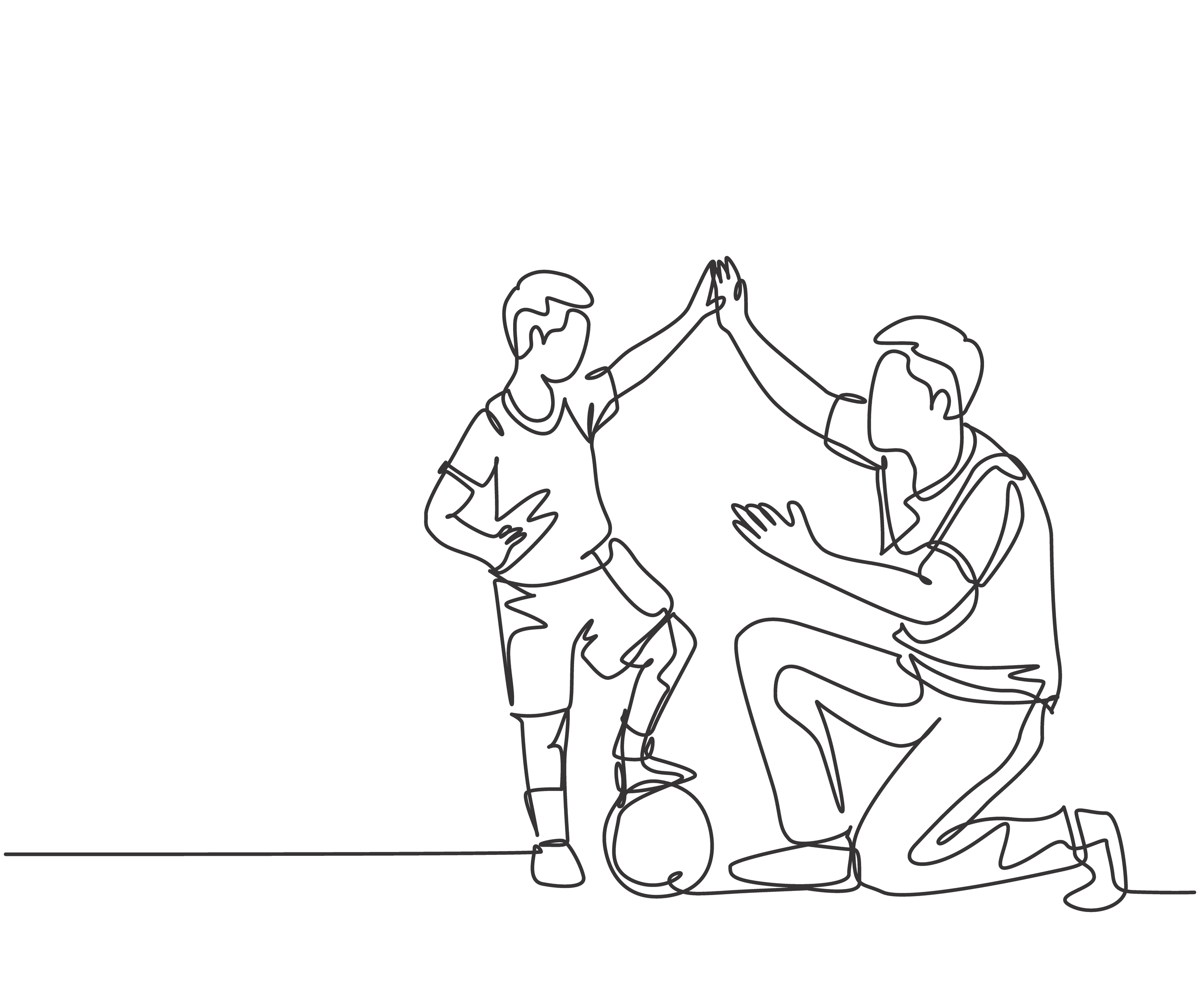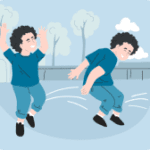Low-Functioning Autism (LFA)
What is Low-Functioning Autism (LFA)?
Low-Functioning Autism (LFA) is a term typically used to describe individuals on the autism spectrum who exhibit significant challenges in communication, social skills, and adaptive functioning. This can include limited verbal abilities, difficulty understanding social cues, and significant reliance on support for daily living activities.
How does Low-Functioning Autism (LFA) affect communication skills?
Individuals with LFA may have serious difficulties with both verbal and non-verbal communication. They might use few words or none at all, struggle to initiate or maintain conversations, and have trouble interpreting body language or facial expressions. Alternative communication methods, such as picture exchange systems or augmentative communication devices, may be helpful.
What are some common behaviors associated with Low-Functioning Autism (LFA)?
Common behaviors in individuals with LFA can include repetitive movements, intense focus on certain objects or topics, difficulty transitioning between activities, and strong reactions to sensory stimuli. These behaviors often serve as coping mechanisms or ways to communicate discomfort or distress.
How can families support individuals with Low-Functioning Autism (LFA)?
Families can support individuals with LFA by creating a structured environment, establishing consistent routines, and using visual supports to aid understanding. Patience and empathy are crucial, as well as seeking professional guidance to implement effective strategies tailored to the individual’s needs.
Are there intervention programs specifically for Low-Functioning Autism (LFA)?
Yes, there are intervention programs tailored specifically for individuals with LFA. These may include Applied Behaviour Analysis (ABA), Speech and Language Therapy, Occupational Therapy, and specialized recreational programmes that focus on developing communication, social, and life skills.
What is the importance of early intervention for Low-Functioning Autism (LFA)?
Early intervention can significantly improve outcomes for individuals with LFA. It is essential for addressing developmental delays, enhancing communication skills, and providing support for everyday challenges. The earlier a child receives appropriate therapies and support, the better the likelihood of fostering independence and effective coping strategies.
How can schools accommodate students with Low-Functioning Autism (LFA)?
Schools can accommodate students with LFA through Individualised Education Programs (IEPs) that cater to specific learning needs. This may include tailored educational plans, sensory breaks, visual aids, and collaboration with special education professionals to create a supportive learning environment.
What role do sensory issues play in Low-Functioning Autism (LFA)?
Sensory processing issues are common in individuals with LFA, leading to heightened sensitivity or a lack of awareness in response to sensory input such as sounds, lights, textures, or smells. Understanding these sensitivities can help families and caregivers develop strategies to minimize discomfort and promote a more manageable environment.
Can individuals with Low-Functioning Autism (LFA) develop skills over time?
Yes, individuals with LFA can develop skills over time, especially with consistent support and targeted interventions. Though progress may be gradual and variable, many individuals can learn essential life skills, communication techniques, and coping strategies that enhance their independence and quality of life.
What support is available for parents of children with Low-Functioning Autism (LFA)?
Parents can access a variety of supports, including local autism organizations, support groups, and online communities where they can connect with other families facing similar challenges. Respite care services and educational resources can also provide much-needed assistance and information.
How can caregivers manage behavioral challenges associated with Low-Functioning Autism (LFA)?
Caregivers can manage behavioral challenges by employing positive reinforcement strategies, providing clear expectations, and remaining calm during difficult situations. Understanding the underlying causes of behavior—such as communication frustration or sensory overload—can help in developing effective interventions.
Are there medications that can assist individuals with Low-Functioning Autism (LFA)?
While there is no specific medication to treat autism itself, some medications can assist in managing co-occurring conditions like anxiety, depression, or attention issues. It is essential for parents to consult with a qualified healthcare provider to explore medication options that may be beneficial.
What types of recreational activities can benefit individuals with Low-Functioning Autism (LFA)?
Recreational activities that focus on sensory engagement, such as swimming, art therapy, or sensory-friendly sports, can be beneficial for individuals with LFA. These activities encourage social interaction, improve motor skills, and provide a positive outlet for expression.
How does Low-Functioning Autism (LFA) impact relationships with peers?
Individuals with LFA may face challenges in forming relationships with peers due to communication barriers and social skill deficits. However, with structured support and guidance, they can develop meaningful connections and find companionship, often through shared interests or guided social interactions.
What strategies can be beneficial for transitioning to adulthood for those with Low-Functioning Autism (LFA)?
Successful transitions to adulthood for individuals with LFA may involve vocational training, life skills coaching, and community integration programmes. Providing mentorship and fostering independence through structured opportunities in education and employment can help ensure a smoother transition into adulthood.
What challenges do individuals with Low-Functioning Autism (LFA) face in daily life?
Individuals with LFA may encounter a range of challenges in their daily lives, including difficulties with communication, limited social interactions, and complications with self-care tasks. These challenges can affect their ability to navigate everyday routines, express needs, and engage with peers or family members, often necessitating additional support and interventions to facilitate learning and adaptation.
How can technology assist individuals with Low-Functioning Autism (LFA)?
Technology can play a crucial role in supporting individuals with LFA by offering communication devices, apps for visual schedules, and sensory-friendly tools. These resources can enhance communication abilities, provide structure to daily activities, and reduce anxiety by promoting predictability in an individual’s environment.
What is the role of family support in the development of individuals with Low-Functioning Autism (LFA)?
Family support is vital in the development of individuals with LFA, as it provides the emotional backing and understanding necessary for navigating challenges. Families can foster an environment of acceptance and encouragement, helping individuals to thrive through participation in therapies, social activities, and daily life skills training.
Are there any common misconceptions about Low-Functioning Autism (LFA)?
Yes, common misconceptions about LFA include the belief that individuals with LFA cannot learn or communicate effectively. In reality, while they may have profound developmental challenges, many individuals can develop skills and communicate in ways that are meaningful to them, though it may require tailored approaches and patience on the part of caregivers and educators.
What types of therapy are effective for individuals with Low-Functioning Autism (LFA)?
Several types of therapy can be effective for individuals with LFA, including Applied Behavior Analysis (ABA), speech therapy, and occupational therapy. ABA focuses on reinforcing desirable behaviors and teaching new skills through structured interventions, while speech therapy aims to improve communication abilities. Occupational therapy helps individuals develop daily living skills and cope with sensory processing challenges.
Can play therapy be beneficial for individuals with Low-Functioning Autism (LFA)?
Yes, play therapy can be beneficial for individuals with LFA as it provides a natural context for interaction and learning. Through play, individuals can practice social skills, express emotions, and engage in creative activities, which can enhance their overall development and encourage communication.
What is the role of family involvement in therapy for Low-Functioning Autism (LFA)?
Family involvement is crucial in therapy for individuals with LFA, as it enhances the effectiveness of interventions. Families can reinforce strategies learned in therapy at home, support skill generalization across different settings, and ensure a consistent approach to managing challenges, ultimately contributing to the individual’s progress.
How can therapy be tailored to meet the specific needs of individuals with Low-Functioning Autism (LFA)?
Therapy can be tailored to meet the specific needs of individuals with LFA by incorporating their interests and sensory preferences into sessions. Individualized treatment plans should focus on the person’s strengths, challenges, and goals, ensuring that interventions are engaging and relevant to their daily lives. Additionally, regular assessments and adjustments to therapy approaches can help maintain effectiveness over time.
What are other parents reading?
When most people think about the senses, the traditional five often come to mind: sight, sound, taste, touch, and smell.
Sensory processing disorder (SPD) often flies under the radar, yet it plays a crucial role in understanding the complexities of
Sensory Processing Disorder (SPD) is a complex condition that manifests in various ways, depending on how individuals process sensory information.
Find a Therapist
Find the physical therapist, occupational therapist, or speech language pathologist you are looking for!
Ask Us Anything
Whether you are looking for advice, have a general question about sensory processing, or are looking for resources - we are here to help!
Ask Us Anything
Submit Your Story
Share your story about your child. Let’s celebrate milestones and learn more about challenges.












 Speech Therapy
Speech Therapy Physical Therapy
Physical Therapy Occupational Therapy
Occupational Therapy
